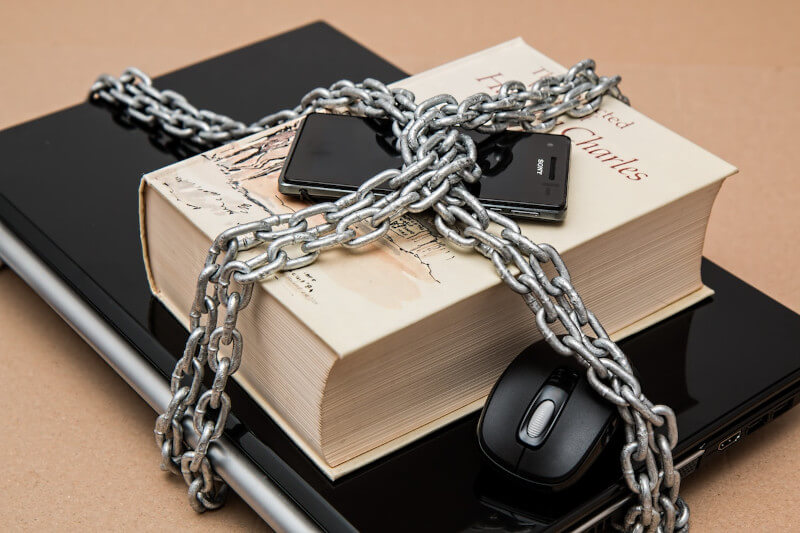In this digitised era, the risk of fraud has amplified. Whether it’s individuals or businesses, everyone is susceptible to the cunning tricks of fraudsters. The need to arm ourselves with the knowledge and tools to prevent fraud is more critical than ever.
Protective Measures
Protecting oneself from fraud may sound daunting, but with simple yet effective strategies, it is entirely achievable.
Strengthen Your Password Fortress: Use complex passwords, a mix of alphabets, numbers, and symbols, and avoid using personal information. Consider using a reputable password manager to securely manage your passwords. Creating a strong password is akin to building a fortress around your data. Using complex combinations isn’t enough. It’s also recommended to frequently change your passwords and avoid using the same one for multiple accounts. Remember, each password is a key. The more complex it is, the harder it is for the fraudsters to forge that key.
“Many fraud attempts start with a weak or compromised password,” advises Tshepo Sithole, an IT security consultant in Johannesburg. “Consider two-factor authentication, which adds an additional layer of security, making it harder for fraudsters to gain access to your accounts.”
Be Alert, Stay Vigilant: Regularly monitor your financial accounts. Report any unfamiliar transactions immediately to your bank or card issuer. The sooner you spot an anomaly, the faster it can be rectified. Staying alert isn’t merely about monitoring your financial accounts regularly; it also extends to your email inbox and phone calls. Don’t open suspicious emails, avoid clicking on dubious links, and be wary of callers requesting sensitive information. It’s like being a sentinel, keeping an eye out for the faintest signs of fraud.
“Conduct a quick personal audit of your digital presence,” advises Sipho Mahlangu, a personal cybersecurity advisor in Soweto. “Ensure your social media accounts are private, limit the amount of personal information you share online, and most importantly, trust your instincts.”
“An aware customer is the first line of defence against fraud,” says Nonhlanhla Khumalo, a cybersecurity analyst in Pretoria. “From suspicious emails to unsolicited phone calls, being sceptical and alert can save you from a potential scam.”
Secure Browsing: A Non-Negotiable:

Navigating the web cautiously isn’t restricted to online shopping. Whether you’re accessing your bank account or just reading news, ensure you’re on a secure site, indicated by “https” in the URL.
“Picturing the internet as a busy marketplace can help,” suggests Nomfundo Moyo, an internet safety educator in Durban. “Just as you’d safeguard your wallet in a crowded place, similarly, secure your data when browsing. Use virtual private networks (VPNs) for an added layer of security.”
A Strategic Approach
Businesses, with their larger volumes of transactions, are attractive targets for fraudsters. Strategic safeguards are crucial.
Employee Training: Employees are often the first point of contact with fraudsters. Regular training sessions on identifying and dealing with potential fraud threats can be invaluable.
Employee training goes beyond just one-off seminars or presentations. It requires an integrated program that includes regular, hands-on workshops, simulated phishing and scamming scenarios, and up-to-date briefings on the latest fraud tactics. By doing this, employees become not just passive bystanders but active participants in the battle against fraud.
“Training needs to be relevant and engaging,” says Musa Nkosi, a corporate training specialist in Cape Town. “Employees need to understand the ‘why’ behind the actions they are being taught to take. This not only helps them retain the information but makes them more likely to apply it.”
System Audits: Regular audits of the business’s financial and IT systems can uncover any anomalies and prevent potential fraud. System audits involve a thorough review not just of your financial systems, but also your IT infrastructure and data handling practices. This means scrutinising everything from your firewall and antivirus software, to your data encryption practices, to the way you store and dispose of physical documents containing sensitive information.
“An audit is like a health check for your business,” says Sandile Dlamini, a cybersecurity auditor in Durban. “It helps you identify weaknesses you may not have been aware of and gives you the chance to address them before they can be exploited.”
Secure Payment Gateways: Use payment gateways with robust security measures. This not only keeps transactions secure but also boosts customer confidence. Using a secure payment gateway is not just about the technology itself, but also about the processes and procedures surrounding its use. This includes ensuring that all software is kept up-to-date, regularly reviewing transaction records for signs of suspicious activity, and having a response plan in place in the event of a security breach.
“A secure payment gateway is about more than just technology,” notes Thuli Madonsela, a financial systems consultant in Bloemfontein. “It’s about having the right processes and people in place to support that technology and respond swiftly if something does go wrong.”
James Motloung, a risk management expert in Johannesburg, underscores the importance of a holistic approach. “In business, protecting against fraud is not just about securing systems,” he says. “It involves creating a culture of awareness, with everyone from the top management to the newest intern playing a role.”
Regulatory Compliance
Adherence to local and international fraud prevention regulations is an often overlooked yet vital part of fraud prevention. Regulations ensure that businesses are maintaining the required standards of security, making it harder for fraudsters to find weak points to exploit.
Compliance should not be seen as a burdensome necessity but an integral part of a business’s overall fraud prevention strategy. Regulatory compliance, combined with proactive internal measures, creates a robust defence against the threat of fraud.
Safeguarding Against Fraud in the Digital Age

In this unfolding saga of digital transformation, as individuals and businesses, we’re stepping into an arena where the stakes are high. The scourge of fraud has permeated the very fabric of our digital interactions, making it incumbent upon us to be the sentinels, the guardians of our digital realms.
The measures discussed in the previous articles paint a comprehensive picture of the steps we can take to bolster our defenses against fraud. But remember, the fraudsters are always adapting, always evolving. It is, therefore, not enough to merely adopt these strategies – we must adapt and evolve with them, making vigilance and adaptability our watchwords in this fight.
In the face of fraud, knowledge and action are our most potent allies. Equip yourself with the understanding of the threats and the techniques to counter them. Then, empower others with this knowledge – your family, your friends, your colleagues. In this way, we can collectively raise our shields against the onslaught of fraud, creating a community that is not just resilient but robustly equipped to combat this menace.
But above all, remember this – we’re in this together. Each of us, from the cybersecurity expert in Johannesburg to the tech-savvy teenager in Durban, has a role to play. In the face of this challenge, let us stand as one, turning the tide against fraud, one click at a time.
